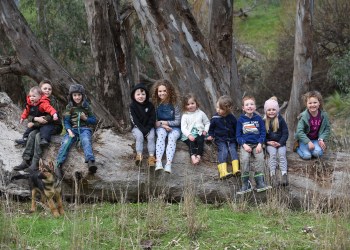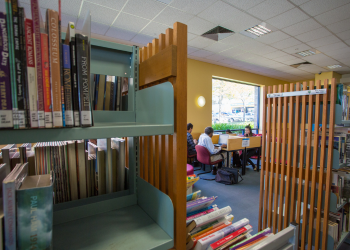Early years - Children 0-8 years
Victorian councils are heavily invested in the education, safety, health & wellbeing, and quality of life of young Australians. They have long championed the rights of children in their municipalities, including the right to early childhood education and care that is accessible regardless of where they live or their socio-economic situation.
As the level of government closest to our communities, councils play a critical role in planning, the provision of significant infrastructure and for many the direct operation of early childhood education and care services.
Promoting and supporting councils in their role in planning and provision of early childhood education and care is a key area of work for the MAV.
MAV Program advocacy
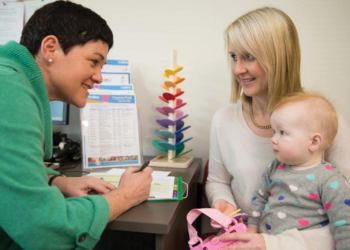 | 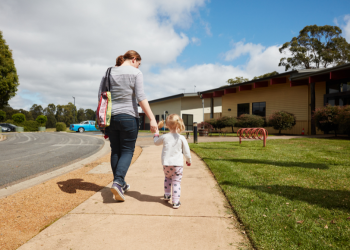 | 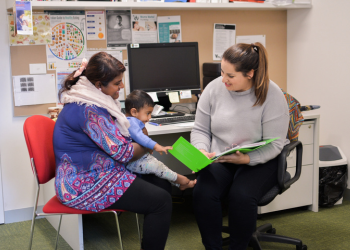 |
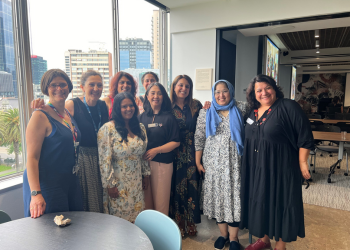 |  |
Promoting and supporting councils’ role in Early Years
Current priorities
A Compact between DET, DHHS and local government (represented by the MAV) 2017-2027 – Supporting Children and Families in the Early Years was signed on 28 April 2017.
This Compact strengthens the collaborative relationship between the three partners in planning, development and provision of early years’ services. It demonstrates a shared focus on improving and sustaining outcomes for children and families across all Victorian communities.
Our immediate priorities include:
- Sustainable and ongoing funding for Universal Access to Early Childhood Education and Care Campaigns
- Early years infrastructure planning and funding
- Promoting the importance of early years
- Promoting the role of local government in the planning and provision of early years services and facilities
- Maternal and Child Health
- Municipal Early Years Plans.
Achievements
Achievements to date include:
- Early Years Compact: a compact between DET, DHHS and local government (represented by MAV) 2017-2027 Supporting Children and Families in the Early Years was signed on 28 April 2017.
- Review of the Early Childhood Agreement for Children in Out of Home Care and subsequent improvements including the confirmation of Local Government positions to support the Agreement, and weekly notification of data
- Development of the new MCH Memorandum of Understanding. Download the Maternal and Child Health Memorandum of Understanding (PDF - 3.13MB)
- Joint advocacy on Universal Access to support continued Commonwealth funding for 15 hours of kindergarten funding
- Representation on a variety of the Department’s governance groups including:
- Victorian Children’s Council
- DET Coleman Foundation Partnership Committee
- Early Years Compact Board and Compact Steering Group
- Marrung Central Governance Board
- New Technical Schools State-wide Policy Implementation Panel,
- Maternal and Child Health Expert Reference Group
- Children and Youth Implementation Working Group
- Early Childhood Development Advisory Group.
Partnerships
DET MAV Partnership Agreement
On 30 March 2018, the Secretary of the Department of Education and Training and the Chief Executive Officer of Municipal Association of Victoria (MAV), signed a new DET MAV Partnership Agreement (the agreement).
The agreement builds on mutual support and collaboration in order to improve outcomes for children, young people and their families, to help ensure that every Victorian is given the best learning and development experience, to make our state smarter, fairer and a more prosperous place. It recognises the collaborative relationship between the Department and councils in the planning, development and provision of initiatives, infrastructure and services across early childhood, schools, TAFE and training.
The agreement provides a formal set of high-level principles to guide the partnership between the Department and the MAV in its representation of local councils, committing both parties to:
- mutual understanding and respect of mandates and responsibilities
- transparency of financial relations, subject to relevant legislation and policies
- mutual support in representations to the Commonwealth
- awareness of synergies between DET, the MAV and councils
- sustaining and improving outcomes for children and families in all communities
- fostering of opportunities to work collaboratively, and
- transparent and timely communication and consultation.
Action plans are developed annually under the Partnership Agreement on a financial year basis. These are reviewed and updated throughout the year.
Committees and reference groups
We represent local government on a range of high-level advisory and reference groups, including:
- Australian Early Childhood Development Steering Committee
- Australian Early Childhood Development Working Group
- Best Start
- Child and Family Services Strategic Forum
- Compact Board
- Compact Steering Group
- Early Childhood Development Advisory Group (convened by DET)
- Early Years Management Strategic Partnership Group and Early Years Management Strategic Partnership Forum
- Foundation House Reference Group
- Early Childhood Reform
- Out of Home Care Central Implementation Group, Data Working Group and Officers Working Group
- Respectful Relationships Expert Advisory Group
- Transition to School Advisory Group Universal
- Services Advisory Group.
We also convene a number of committees and working groups to help inform our work and build capacity within the sector, including:
- Early Years Strategy Group Central
- Workforce Advisory Group
- Infrastructure Advisory Group
Submissions and briefs
We develop and form a collective local government sector view on a range of early years’ reviews and issues. These include:
- Submission to Productivity Commission Inquiry into Early Childhood Education and Care - May 2023 (PDF - 366.7KB)
- Submission in response to the Early Years Strategy Discussion Paper - Apr 2023 (PDF - 202.9KB)
- Consultation on the Lifting Our Game Report - Dec 2017 (PDF - 2.64MB)
- Submission to the Senate inquiry into the Commonwealth Government's Jobs for Families Child Care Package Bill - Jan 2016 (Word - 317KB)
- Submission responding to a Victorian Government consultation paper on early childhood education and providing input to a Roadmap to Reform project on the child and family services system - Oct 2015 (Word - 364KB)
To access all our early years-related submissions, visit the MAV submissions page.
We also prepare briefing papers for our members’ use:
Early Years Planning
Municipal Early Years Plans
Municipal Early Years Plans (MEYPs) usually focus on early years 0 – 8 but can span from early years to young adulthood.
Although MEYPs are not statutorily required, they are important for the strategic alignment of effort across a council to achieve the health and wellbeing of children in a municipality, and to influence and improve their educational and developmental outcomes.
The importance of local government in leading local policies, developing and delivering programs and providing infrastructure that can influence the health, education and wellbeing of its younger population is well recognised and reflected in their MEYPs.
Visit each council website to view their MEYP.
Infrastructure and Planning
Kindergarten Infrastructure and Services Plans (KISPs)
In 2023, DE in partnership with MAV have been working with local governments to update KISPs to reflect Pre-Prep demand and incorporate updated data, such as population estimates and new kindergarten supply.
KISPs support planning for services and future capital works, with detailed information about:
- current capacity and demand for funded kindergarten
- capacity to be delivered by planned infrastructure projects and future demand for kindergarten.
- forecast ‘unmet demand’ for kindergarten – that is, the kindergarten places needed that cannot be met by current or planned capacity.
- information specific to each local government area and its early childhood education and care landscape.
They present a state-wide picture of kindergarten supply and demand over the life of the reforms.
KISPs are not funding documents and do not commit either the state or local governments to meeting the projected unmet demand. However, local governments and not-for-profit kindergarten providers applying for Building Blocks Capacity Building Grants need to refer to, and align their proposed project with, unmet demand identified in the KISP.
We know that local data and intelligence improves KISPs and in addition to including local government data, we will include local providers in the KISP update process.
We will work with the sector to understand their feedback in more detail and then improve the way we share KISP estimates so they are accessible and user-friendly.
Historic information is available for councils on our Members Only page at Early Years Infrastructure Planning and Funding.
Resources for councils
Councils are able to access Members Only resources via the MAV extranet.
MAV is currently in the process of updating this information.
MAV Program advocacy
The MAV works in partnership with councils and other sector partners including the Victorian Government to deliver projects which align with our shared strategic priorities.
Maternal and Child Health
The MAV works in partnership with the Victorian Government on policy directions, funding and continuous improvement for maternal and child health services in conjunction with other early childhood services.
The Maternal and Child Health Memorandum of Understanding (MOU) (PDF - 541.5KB) acknowledges the shared commitment for the delivery of high quality and safe maternal and child health services to support the health and wellbeing of Victorian families and children.
Central registration and enrolment scheme
Central Registration and Enrolment Scheme (CRES) is a best practice model for local councils to support families and carers to secure a kindergarten place for their child. 57 councils operate a CRES for some or all services in their municipality.
Approximately 69,000 children registered through a CRES in 2023, up from 63,000 children in 2022.
Applying for a place at kindergarten is known as registering. All CRES centralise this process for families for some or all services providing Kindergarten in the municipality. Some councils allow families to elect preferences for multiple services, in the event their first preference is not available. Some councils also centralise the registration process for non-kindergarten services - family day care and standalone long day care services.
When a family’s registration results in an offer for a kindergarten program, the process of accepting the offer and supplying the service with the remaining information that is necessary is known as enrolment. Some councils also centralise this process for families.
The benefits for families
- Central enrolment provides a single point for families to apply for multiple kindergarten services in a local government area, helping families secure a place that meets their needs.
- It allows State-funded kindergarten places to be allocated equitably to eligible children, in line with Department of Education Priority of Access guidelines.
CRES makes access to a kindergarten place equitable, simple and consistent for local families.
The benefits for councils include:
- It allows councils to establish closer links between MCH services and kindergartens, to improve the early identification of children who need more support.
- It also assists councils to obtain vital planning data and relieves the administrative burden for local parent committees and service providers.
About the project
The Central Enrolment Project was established in 2018 in partnership with the MAV to support councils to adopt, expand and enhance CRES across Victoria. In recognition of the important role of CRES, the Department of Education now provides a financial contribution to councils to support the operation of the schemes.
In 2023, State Government provided additional funding to recognise the crucial role councils play in supporting the State Government's Best Life, Best Life reforms that provide all Victorian children with access to two years of free, quality kindergarten.
Strengthening the capacity of kindergarten central enrolment across the state is an implementation priority identified in Supporting Children and Families in the Early Years A Compact between DET, DHHS and Local Government (represented by MAV) 2017-2027 (PDF - 342KB).
Resources
The Kindergarten Central Registration and Enrolment Scheme (CRES) best practice materials are now available on the Victorian Government website.
Developed in partnership with the Municipal Association of Victoria, these materials provide a best practice model for local councils and other organisations to support families and carers enrolling their children in kindergarten.
A co-design process was undertaken with key stakeholders including councils, service providers, MCH, peak bodies and support services, the CRES is a best practice model for local councils and other organisations to support families and carers to secure a kindergarten place for their child. It is underpinned by six principles that promote consistent, inclusive and equitable access for families, service providers and support services.
The model is supported by practical guides, tools and templates which can be easily adopted and tailored to each councils' circumstance. The resources include:
- CRES Development Guide and related materials, to be used to establish, improve or expand a scheme
- CRES Practice Guide and related materials, detailing the steps to operate a best practice scheme
- CRES Self-Assessment Tool, a self-reflective tool for CRES providers to identify areas for growth and to support continuous improvement.
For further information about CRES, contact:
- Municipal Association of Victoria, email: centralenrolment@mav.asn.au
- Early Years Management and Partnerships Unit, email: early.years.participation@education.vic.gov.au
Child Information Sharing Scheme
The Child Information Sharing Scheme (CISS) allows authorised organisations to share information to support child wellbeing or safety. Many organisations already work together to do this. The Scheme has expanded legal permissions for professionals to share and request information from other professionals.
This ensures that professionals working with children, young people and families can gain a complete view of the children and young people they work with, making it easier to identify wellbeing or safety needs earlier, and to act on them sooner. This will allow children to receive the best support possible across services.
CALD Outreach Worker Initiative
Culturally and Linguistically Diverse (CALD) Outreach Workers address barriers to kindergarten access and participation for children and families from CALD backgrounds. They also support families transition to school, as well as ongoing engagement and participation in education.
From January 2025 to June 2027 there will be 26 local councils participating in the CALD Outreach Initiative:
|
|
Resources
MAV has developed the CALD Kindergarten Participation Welcome Pack (PDF - 2.58MB) to support councils in engaging culturally and linguistically diverse (CALD) families in early childhood education.
For more information on the CALD Outreach Initiative please contact your participating local council directly or the department at early.years.cald.programs@education.vic.gov.au.
Best Start, Best Life reform
Local Government is a critical partner to the Victorian Governments Best Start, Best Life reforms (BSBL), which seeks to deliver 30 hours per week of Pre-Prep for 4-year-old children across the state by 2032. The MAV is funded to work with Local Government to support planning and implementation activities and drive increased understanding about the benefits of the reforms. Key MAV activities to support councils for the rollout of Pre-Prep, across focus areas of Infrastructure, Workforce and Change Management, include:
- Promoting and supporting councils in their role in planning and provision of early childhood education and care
- Convening an Infrastructure Advisory Group and a Workforce Advisory Group
- Working with local governments to update KISPs to reflect Pre-Prep demand and incorporate updated data, such as population estimates and new kindergarten supply.
- Supporting councils to access funding opportunities that support new builds, extensions, and renovations to boost capacity and ensure their communities can access the full benefits of two years of early learning. Including:
- Kindergartens on School Sites (KOSS)
- Building Blocks Capacity Building Grants
- Building Blocks Grants: Modular Kindergartens
- Supporting councils to access and promote funding opportunities to increase workforce. Including:
- Scholarships and student supports
- Individual and Location Incentives for Teachers and Educators
- Working with local government to identify opportunities and challenges, and providing information and advice to support the implementation.
- Encouraging strong engagement between Early Childhood Improvement Branches and Local Governments in delivering the BSBL reforms.


